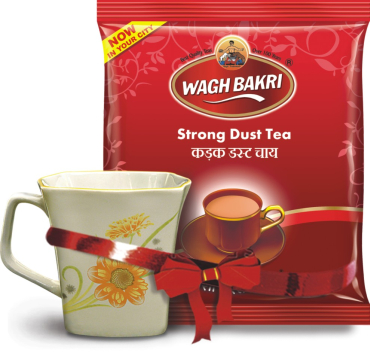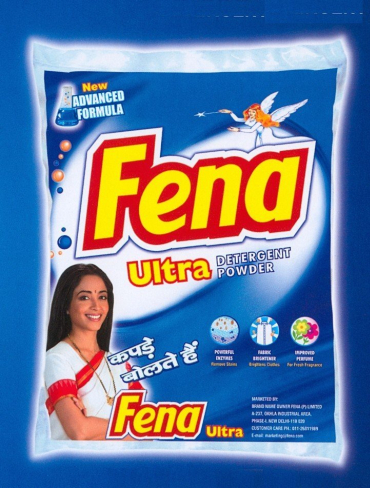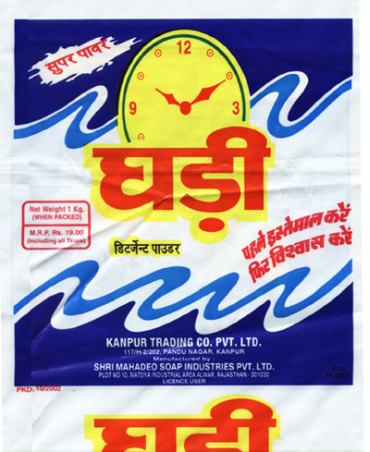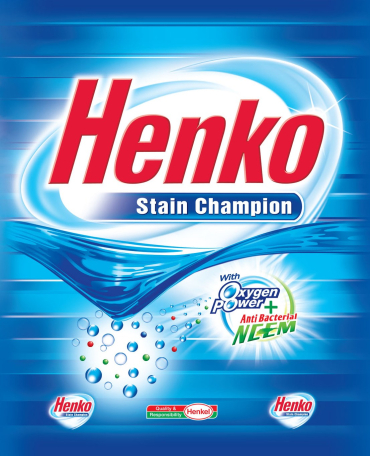 | « Back to article | Print this article |
Regional brands struggle to go national
Waghbakri tea is a known name in Gujarat. It is the market leader in that state with a 45 per cent market share.
In recent years, however, the brand has been attempting to go national moving to neighbouring states such as Rajasthan, Madhya Pradesh, Maharashtra, Goa and Delhi.
It has even made inroads into the southern city of Hyderabad. But has the going been easy in these states?
"Certainly not," admits Parag Desai, whole-time director, Waghbakri Tea Group. "The taste, quality of water and milk are totally different in different regions. So yes, there are challenges. But we have attempted to tide over these with our in-house research team which works on blends that are favourable to that region," he says.
Desai says the market share is not substantial at the moment. In Rajasthan and Madhya Pradesh, for instance, the brand has less than 10 per cent share and in Maharashtra, it's just about 5 per cent. In Delhi, Goa and Hyderabad, Waghbakri's entry has been recent.
The challenges faced by Waghbakri are not new to regional brands. Most of them have struggled to make the transition from local to national.
Some have managed to do it well, while others have struggled to shed their regional image.
Click NEXT to read more...
Regional brands struggle to go national
This Chennai connection, as industry sources describe it, has even prompted CavinKare's chairman and managing director CK Ranganathan to consider shifting base to Mumbai in an attempt to acquire a national footprint.
Ranganathan insists that some of his company's brands such as Nyle and Chik shampoos are national brands, which are stronger in the north than the south.
"Only Meera and Kartikeya shampoos are southern brands," he says.
Despite this, CavinKare continues to be stuck with a regional tag, which is also the problem with most other regional brands.
Take Delhi-based Fena (detergent/bar maker) or Kolkata-based Safed or Punjab-based Bector Foods, the maker of the Cremica brand of food products, all of them have the same problem - a strong regional identity - say market experts. Apart from being stuck with the identity of a region, local brands also have other issues to grapple with.
They are the need for deep pockets and the ability to put in place a national marketing, distribution and sales team.
Ranganathan admits as much.
Click NEXT to read more...
Regional brands struggle to go national
CavinKare, for instance, is looking to raise over Rs. 500 crore (Rs. 5 billion) by offloading stake to private equity investors.
Ranganathan says he is talking to investors and may even consider an initial public offering to raise money.
"That is an option we are open to," he says.
But not all regional players are eying the IPO route to raise money. Rohit Surfactants, makers of Ghari detergent powder and bar, which is the number two today in the pecking order of detergents, after Hindustan Unilever, has no plans to list on the bourses.
The Kanpur-based firm continues to work on keeping its leadership position going especially in the north, where it is strong, say company executives.
According to Dalip Sehgal, managing partner, DS Consulting, regional majors quite often do not have the management bandwidth to look at a national play.
Click NEXT to read more...
Regional brands struggle to go national
"Quite often there is not enough investment made in the kind of people who can look to take them national. That is an impediment," he says.
Still others have simply opted to limit their play to a few regions. Take Henkel India, for instance.
The Chennai-based firm, where the Mumbai-based Jyothy Laboratories acquired majority stake recently, had laundry, home care and personal care brands whose distribution was largely restricted to the south.
One reason for this was the stiff competition from HUL and Procter and Gamble, which ensured that Henkel could never move beyond its safe haven of the south, say industry experts.
The second reason concerned differences between the majority partner Henkel AG and minority partner A C Muthaiah, which ensured that timely moves were never made by the joint venture company.




